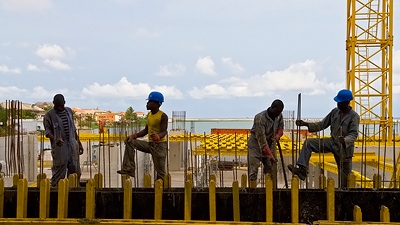Country-level impact
CoST’s multi-stakeholder activities are beginning to influence project and contract management practices by making information publicly available and easy to understand.
In Guatemala, CoST has fostered an unprecedented joint effort for transparency in the public construction sector, with active participation from the government, the private sector, and civil society. Following recommendations from CoST’s Assurance Team, procuring entities now have to ensure that sufficient budget is in place before contracting firms. The General Directorate for Roads also annulled the works contract for the design and reconstruction of the Belize Bridge in Guatemala City, based on CoST’s advice.
In Ethiopia, the adoption of an alternative road design recommended by CoST’s Assurance Team is expected to lead to a cost saving of around US$2.3 million. The CoST Ethiopia MSG acted as a crucial intermediary in persuading the Ethiopian Roads Authority and the Supervising Engineer to accept the Assurance Team’s recommendation. In addition to the cost saving, the original designers of this project were suspended for two years by the Ethiopian Roads Authority for actions highlighted by the Assurance Team.
Tackling cost overruns
The public needs to be more informed about the performance of the construction sector because average cost overruns in the construction industry are substantial.
According to one study, overruns for transport infrastructure worldwide average 45 percent for rail, 34 percent for bridges and tunnels, and 20 percent for roads. For the 10 developing countries included in the sample, cost overruns average over 64 percent. Similarly, a study performed by Transparency International found that approximately 10 to 30 percent of an individual construction contract’s value is lost to mismanagement and petty corruption.
The CoST pilot reinforced these findings. A diagnostic study performed on a sample of 25 contracts found average cost overruns of 58 percent in Ethiopia, 10 percent in the Philippines, and 6 percent in the United Kingdom. Of a total portfolio of approximately 200 contracts across 29 procuring entities, CoST analyzed the documentation of 84 and found a number of "irregularities."
“CoST’s activities found that 40 percent of the identified concerns were concentrated in the construction phases of the project cycle,” explains Kirsten Hommann, a Senior Economist at the World Bank. “This shows that we need to broaden our focus to cover not only procurement risks, but to also recognize possible governance failures during contract implementation.”
For Jamie Drummond, co-founder and executive director of the global advocacy organization ONE, the CoST Global Program brings great value to the infrastructure sectors. “CoST is a fantastic initiative that ONE is proud to support. Transparency in the construction sector, from the financing to the decision-making stage, is crucial in allowing the public to hold decision makers to account," Drummond says.
Funding for CoST comes from the German Agency for International Cooperation (GIZ), the UK’s Department for International Development (DfID), and the World Bank. To date, 20 organizations spanning the public and private sectors and civil society have officially endorsed the program. The World Bank has worked with the Initiative since 2009 in an advisory capacity and in late 2011 provided seed-capital of US$1.5 million, over three years, from the Development Grant Facility to launch CoST as a global initiative, similar to the Extractive Industries Transparency Initiative.

